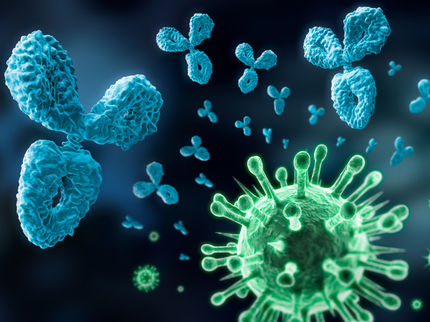Positive Results for DNA-based vaccine in humans
Advertisement
PowderMed, Ltd. announced the publication of positive results from a Phase I study evaluating its proprietary prophylactic DNA influenza vaccine in the journal Vaccine (volume 24, issue 21). Based on these results, PowderMed will start phase II studies using both annual and bird flu strains later this year.
Authored by lead researcher Dr. Hansi Dean, the report documents the safety and immunogenicity of PowderMed's monovalent influenza DNA vaccine delivered with the company's Particle Medicated Epidermal Delivery (PMED) needle-free injection system. The trial examined three doses of a DNA plasmid encoding the H3 haemagglutinin (HA) gene for Panama flu (1, 2 and 4 micrograms) administered as a single dose to 36 healthy adult volunteers. Immune response was assessed according to criteria set by the Committee for Proprietary Medicinal Products (CPMP) for the approval of annual flu vaccines in the European Union.
At the maximum dose tested (4 micrograms), all subjects achieved a seroprotective level of antibodies demonstrating that this DNA vaccine is a viable candidate for expanded clinical evaluation as a potentially powerful defense against influenza and pandemic flu. The maximum dose (4 micrograms) passed the CPMP criteria at 21 days and was well tolerated. All three doses passed the CPMP criteria at 56 days.
"Recent years have seen a number of new influenza vaccine approaches tested in animal model systems and in the clinic. However, this study is the first successful demonstration of immunogenicity of an influenza DNA vaccine in humans," said Dr. Hansi Dean, now with the International AIDS Vaccine Initiative.
Other news from the department research and development
Most read news
More news from our other portals
See the theme worlds for related content
Topic world Antibodies
Antibodies are specialized molecules of our immune system that can specifically recognize and neutralize pathogens or foreign substances. Antibody research in biotech and pharma has recognized this natural defense potential and is working intensively to make it therapeutically useful. From monoclonal antibodies used against cancer or autoimmune diseases to antibody-drug conjugates that specifically transport drugs to disease cells - the possibilities are enormous

Topic world Antibodies
Antibodies are specialized molecules of our immune system that can specifically recognize and neutralize pathogens or foreign substances. Antibody research in biotech and pharma has recognized this natural defense potential and is working intensively to make it therapeutically useful. From monoclonal antibodies used against cancer or autoimmune diseases to antibody-drug conjugates that specifically transport drugs to disease cells - the possibilities are enormous



























































